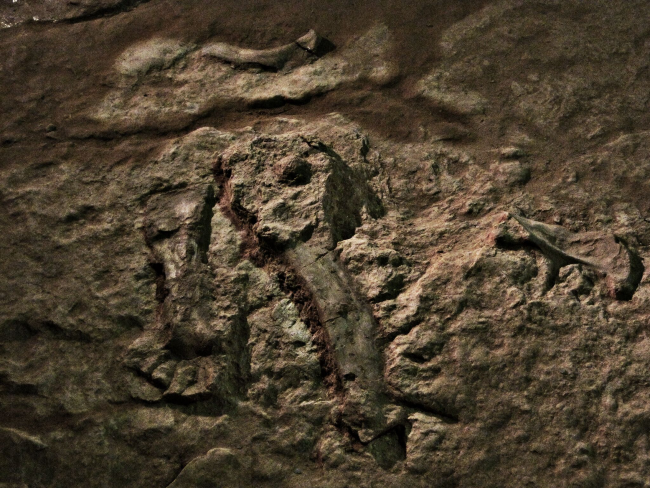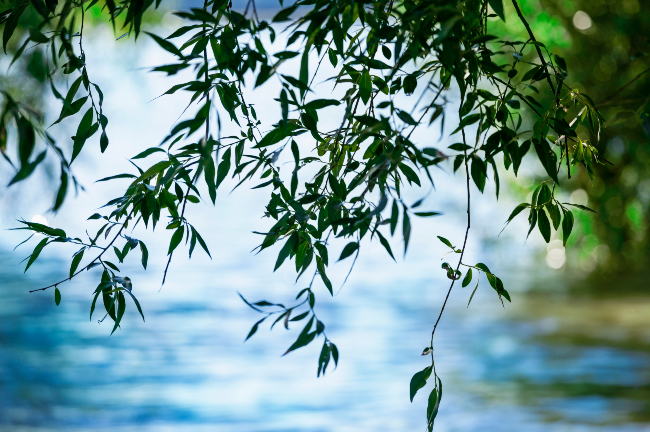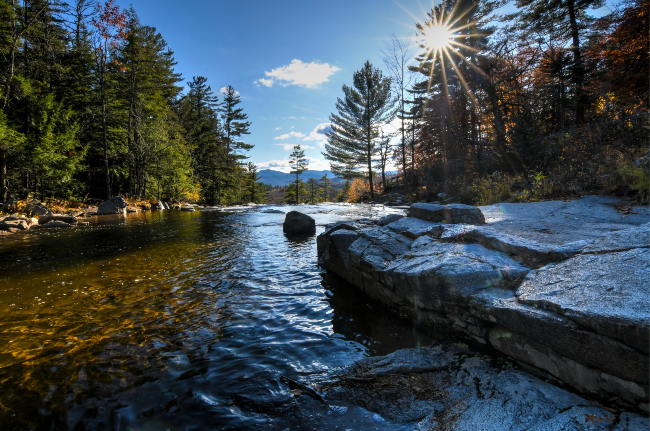Hopelessness paralyzes; in order to step into changes, we need to believe that change can affect the future. The following poem by Maya Angelou, which was written for the 1993 U.S. Presidential Inauguration, issues a warning and a call to change, but along with those, there is also a voicing of relentless hope.
On the Pulse of Morning
By Maya Angelou
A Rock, A River, A Tree
Hosts to species long since departed,
Marked the mastodon,
The dinosaur, who left dried tokens
Of their sojourn here
On our planet floor,
Any broad alarm of their hastening doom
Is lost in the gloom of dust and ages.
But today, the Rock cries out to us, clearly, forcefully,
Come, you may stand upon my
Back and face your distant destiny,
But seek no haven in my shadow.
I will give you no hiding place down here.
You, created only a little lower than
The angels, have crouched too long in
The bruising darkness
Have lain too long
Face down in ignorance.
Your mouths spilling words
Armed for slaughter.
The Rock cries out to us today, you may stand upon me,
But do not hide your face.
Across the wall of the world,
A River sings a beautiful song. It says,
Come, rest here by my side.
Each of you, a bordered country,
Delicate and strangely made proud,
Yet thrusting perpetually under siege.
Your armed struggles for profit
Have left collars of waste upon
My shore, currents of debris upon my breast.
Yet today I call you to my riverside,
If you will study war no more. Come,
Clad in peace, and I will sing the songs
The Creator gave to me when I and the
Tree and the rock were one.
Before cynicism was a bloody sear across your
Brow and when you yet knew you still
Knew nothing.
The River sang and sings on.
There is a true yearning to respond to
The singing River and the wise Rock.
So say the Asian, the Hispanic, the Jew
The African, the Native American, the Sioux,
The Catholic, the Muslim, the French, the Greek
The Irish, the Rabbi, the Priest, the Sheik,
The Gay, the Straight, the Preacher,
The privileged, the homeless, the Teacher.
They hear. They all hear
The speaking of the Tree.
They hear the first and last of every Tree
Speak to humankind today. Come to me, here beside the River.
Plant yourself beside the River.
Each of you, descendant of some passed
On traveller, has been paid for.
You, who gave me my first name, you,
Pawnee, Apache, Seneca, you
Cherokee Nation, who rested with me, then
Forced on bloody feet,
Left me to the employment of
Other seekers—desperate for gain,
Starving for gold.
You, the Turk, the Arab, the Swede, the German, the Eskimo, the Scot,
You the Ashanti, the Yoruba, the Kru, bought,
Sold, stolen, arriving on the nightmare
Praying for a dream.
Here, root yourselves beside me.
I am that Tree planted by the River,
Which will not be moved.
I, the Rock, I the River, I the Tree
I am yours—your passages have been paid.
Lift up your faces, you have a piercing need
For this bright morning dawning for you.
History, despite its wrenching pain
Cannot be unlived, but if faced
With courage, need not be lived again.
Lift up your eyes upon
This day breaking for you.
Give birth again
To the dream.
Women, children, men,
Take it into the palms of your hands,
Mold it into the shape of your most
Private need. Sculpt it into
The image of your most public self.
Lift up your hearts
Each new hour holds new chances
For a new beginning.
Do not be wedded forever
To fear, yoked eternally
To brutishness.
The horizon leans forward,
Offering you space to place new steps of change.
Here, on the pulse of this fine day
You may have the courage
To look up and out and upon me, the
Rock, the River, the Tree, your country.
No less to Midas than the mendicant.
No less to you now than the mastodon then.
Here, on the pulse of this new day
You may have the grace to look up and out
And into your sister’s eyes, and into
Your brother’s face, your country
And say simply
Very simply
With hope—
Good morning.

A Warning
In the same way that mastodon remains are imbedded in the surface of the earth, there are warnings imbedded in this poem. Like an Old Testament prophet, Maya Angelou begins her poem, On the Pulse of the Morning, with hard realities: other species have come and gone before us; our planet is crying out, sending clear warnings to us; we have left "collars of waste" on the shores of our planet. Furthermore, we have exploited whole groups of people. We need to admit to our history, stand upon it, learn from it, and change our behavior as a result of that recognition of truth. Angelou calls the reader from a posture of denial ("hiding our faces") and ruthless ambition and exploitation to a new posture of repentance and change.

To stop "hiding our face," we look at what we have done to the planet and face our history of greed and exploitation of other peoples and the land, our thirst for war ("mouths spilling words/armed for slaughter"), and our endless ambition. Over the past couple of years, there have been many opportunities to learn about these darker parts of our histories. It has been painful, but necessary, to read some different history books to learn another perspective from the history we learned as children.
“History, despite its wrenching pain
Cannot be unlived, but if faced
With courage, need not be lived again”
To learn a new point of view, we have to become teachable, leaving the cynicism that is a "bloody sear across your brow," showing the humility of "when you yet knew you still knew nothing." In order to enter the place "by the river" where we can rest, we need to acknowledge our own ignorance and listen well in order to make peace with the earth, the rest of creation, and each other. If we take responsibility for the past and choose a different future, only then can we enter the future envisioned in the poem.
When I read this poem, I hear constant echoes of biblical language: "You, created only a little lower than/The angels,"(Psalm 8:5) "if you will study war no more", (Isaiah 2:5)"that Tree planted by the River," (Psalm 1) are some examples of this. This isn't accidental or incidental. It helps me to understand Angelou's context and also adds a richness to her vision. That place by the river is both a poetic vision and a biblical vision. As she once said, "I find in my poetry and prose the rhythms and imagery of the best — when I'm at my best — of the good Southern black preachers. The lyricism of the spirituals and the directness of gospel songs and the mystery of blues are in my music, are in my poetry and prose, or I've missed everything."[1]
A Vision
The vision inherent in the poem is a beautiful one—the tree planted by the River, the peace and rest to be found there, the arrival of a new morning. The vision includes a community of those listening together to the wisdom, song, and speech of the earth and existing in harmony. "Come,/Clad in peace,/and I will sing the songs/The Creator gave to me when I and the/Tree and the rock were one." Often, I think, we do not grasp the possibility of this—that God calls us to live out and bring about his reign on earth now, not in some far-off future time, but now.

The poem ends with a picture of hope, as Angelou calls the reader to "give birth again to the dream, " promising that—
Each new hour holds new chances
For a new beginning.
The culmination of this vision is a place where fears and barriers are removed and people are able to look in each other's eyes, in the eyes of this country, and recognize that something has changed. The darkest part is past and a good morning has begun. There is hard work to do before we get to that ending of the poem, but we can get there, Angelou asserts, through honesty, repentance, and hard work.
A Call
And yet, I cannot forget that the mastodon is gone. I am left with the reminder that sometimes warnings sent through the prophets are ignored and hard justice falls upon those who continue to forsake justice and mercy. There are "ifs" in this poem that need to be addressed. There is work to do to turn those "ifs" into "thens."
Reflection Questions: Is there a step you can take to listen better to the warnings of the earth around you? What part of this poetic vision resonates most with you?
Maya Angelou was given a 1994 Emmy in the Spoken Word category for this reading at the 1993 inauguration.
Louise
Click here to leave a COMMENT or SHARE this post
You can contact me directly at info@circlewood.online.
[1] 'Fresh Air' Remembers Poet And Memoirist Maya Angelou, https://www.npr.org/2014/05/28/316707321/fresh-air-remembers-poet-and-memoirist-maya-angelou.